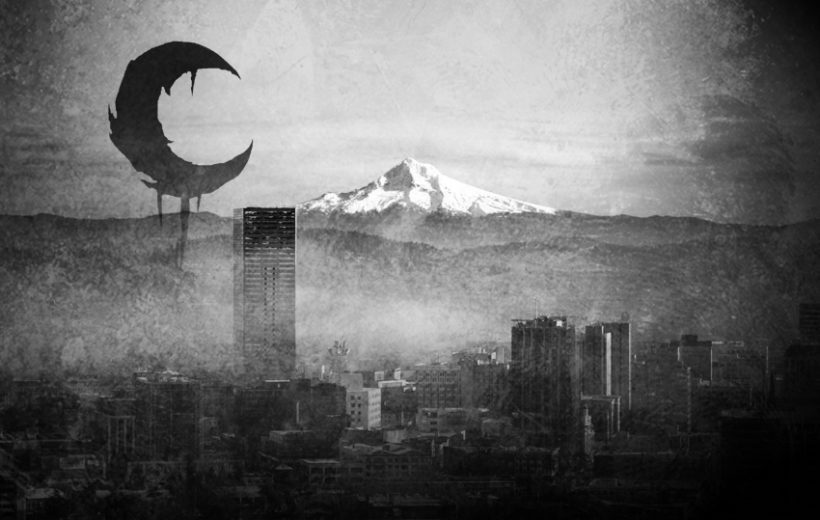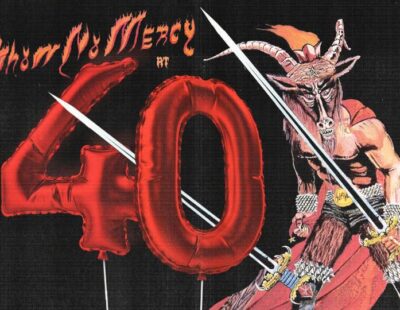
It’s no shock that in 2018, small businesses are feeling stressed beyond their usual level of constant anxiety. Between a sharp raise of shipping costs thanks to the well thought out policies of the United States Postal Service to the decimation of tax credits and deductions to small businesses, it’s surprising to see that more entrepreneurs haven’t said “fuck it” and joined the rest of us in the miserable collective workforce wasting our lives so that others can get rich off our backs.
I was tempted to end that sentence with “comrade.”
So, when you see people who still have the psychological fortitude to keep up the fight for independent business in this day and age, you’ll either find it inspiring or question their sanity. What makes it worse is watching passionate individuals give it their all only to come up against the forces of big business and development. My first real experience with this was watching the Relapse store in Philly get forced out of the neighborhood along with a slew of other counterculture staples because developers wanted to scrub the South Street area of its charm and culture in order to put in high fashion boutiques selling jeans that cost half a car payment. I’m sure most of you have similar memories of beloved institutions going dark because there needed to be expensive housing that no one who lived in the area could afford.
Portland, Oregon is no exception to this. And while you may have a sour taste in your mouth when you read that name, no doubt because of the gentrification or the skyrocketing cost of living, or maybe you get pissed if you see someone riding a unicycle like it’s normal, it’s this city which my rambling is focused on. Namely, the collective of Eberhardt Press, Printed Matter and Devout Rcrds. Eberhardt is a lithograph printing press that handles a lot of the city’s local metal scene; Printed Matter should be self explanatory with their name, while Devout Rcrds is the storefront record store owned by Stevie Floyd (Dark Castle) and Jef Whitehead (Leviathan). To catch you up, I spoke to both of them as to what’s happening and why you should care.
Explain what happened and who all this affected?
Stevie: We are three small individual Portland businesses that share the same warehouse… the record store, Devout Rcrds; traditional lithograph printer, Eberhardt Press; and screen printer, Printed Matter. We work together on record releases, t shirts, etc., but also separately of course with our own callings and art and music-related world, as well as other fields. We share the same warehouse and have occupied that space for a decade. Everyone knows that developers are quickly kicking all small businesses out at rapid speed around Portland these days, but it’s definitely gotten out of hand lately. The mere reason people visit Portland is because of the incredible amount of eclectic and unique small businesses that would survive nowhere else. Now, us and everyone we know that works hard around the clock to do what we do are being kicked to the curb for some stupid strip mall with condos on top to open. Just like San Francisco in the ’90s.
Jef: It was our work space and shipping office for two-and-a-half years until we decided to open Devout Rcrds, a small underground black/death metal record store where we sold records, CDs, shirts and a variety of ours and other artists’ work. Our lease was up at the beginning of April 1st of this year. The previous owner died and, at first, the new owner wanted to raise the rent. The very week after the new owner was to raise the rent, he slid a notice of termination under the door, citing that he could get almost double the rent of the proposed rent increase.
Portland is a city full of record stores, screen printers, unicycles–what makes the collective you’re raising money for stand out from the rest?
Jef: Eberhardt Press has been a long standing force in the anarchist community and Printed Matter has provided affordable apparel and poster work for some of the most legendary bands hailing from Portland for years. Devout Rcrds specializes in underground musics from small labels and offers T-shirts, prints, posters, pins, etc. from Stevie Floyd, Tim Lehi, Mark Riddick, myself and many others. R., who also works at Devout, runs Vrasubatlat Tapes and we carry physical copies of every independent label in PDX.
Stevie: It’s not that we think that we stand out. We’re just trying to keep doing what we do. Our love for DIY is probably what binds us. We are three separate businesses, but we collectively share the same ethics as far as that goes. Making records, shirts, stickers, books, etc. for the world of artists of all kinds moves us ’cause we actually give a fuck, unlike all these greedy jerks moving in and kicking everyone out.
What was the drive to open a physical storefront when it’s easier just to throw shit online and not have to deal with face-to-face interactions?
Stevie: Because it’s important. Anyone can sell stuff online, and you’re pretty much an idiot in 2018 to open an underground black metal and death metal storefront. For us, though, it’s important to keep that alive because there aren’t many left. Yes, there are more record stores per capita in Portland than anywhere else….but that’s what makes this place magical, for lack of a more brutal term.
The fact that you can make that happen here is why we live here. The days of skateboarding two miles and stopping to get a Jolt cola on your way to the record store as a kid and buying a killer metal record because of the cover that you’ve never heard of before are over. So somebody’s gotta keep it alive. It’s not about easy, and it’s not about money. It’s just caring about metal.
Jef: Mostly to be able to turn people on to music that’s new to them. So that people can not only listen to it but see the packaging and hold it in their hands before they purchase it. And to have a place that people can find limited releases that sell out quickly before they’re gone.
Why are record stores still important in 2018?
Jef: Supporting bands by buying their records is a way of giving back, in my personal opinion. Some of my most cherished records I bought because the cover art or the layout hooked me. The act of actually holding something tangible in your hands. And it’s a place where you can get tips from people’s mouths instead of whatever avatar they thought made them look “evil.” I grew up with any trip to a record store being very exciting and a chance to learn about that one weird ass band I’d never heard of before.
Personally, I think records and tapes and the collecting of them is a timeless thing. Devout has been helped in our short existence by some pretty stellar labels and like-minded people.
—
The story of this collective isn’t unique these days. In the last few years, it seems that the number of developers with an eye for high-priced real estate in “cool” areas has ramped up; areas that the people who can afford these places never would have gone in before it was made “safe” for them. Between this and the domination of the online market, as well as streaming services, it’s a hostile environment for those who have the drive and vision to keep the tradition of record stores and counterculture hubs in general alive.
Because of this, Devout, Eberhardt and Printed Matter are asking for your help to relocate and continue operations in a climate that would give most of us a stroke. I’m sure you could make the argument that crowd sourcing to maintain your business is tacky. This isn’t Crematory bitching that you didn’t buy enough of their new record to continue on as a band, or any of the fly-by-night assholes who want you to pay them a living wage for playing shitty metalcore.
These are businesses that function as the circulatory system for this city. They provide the service of affordable printing for bands, a place that not only you as a music fan can go and purchase rare records without getting punished by a postal service that has rising rates and lowering quality control, but also a place where labels worldwide can distribute their titles to like-minded people. This doesn’t just benefit the people who own and operate these businesses but hundreds, perhaps thousands if we’re being uncharacteristically optimistic, of bands, labels and businesses across the country, perhaps globally.
Even if you decide not to donate (or you’re fucking broke), this is still something you should think about. Because when big business runs collectives like this out then the rest of us are forced to pay more, search harder, and ultimately watch the people with ideas and dreams just give up.
If you would like to donate, you can do so here.






